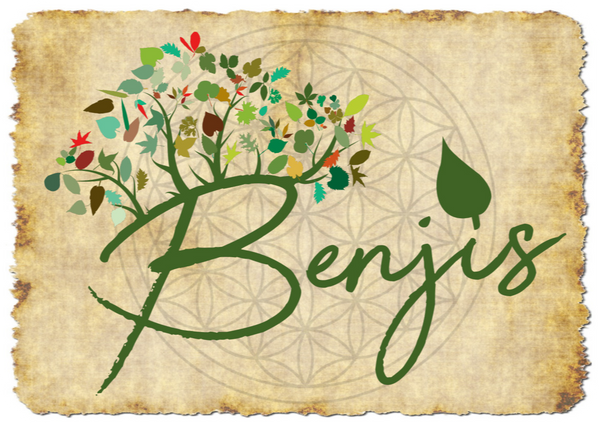For thousands of years, it was a matter of course to breed, store, and redistribute new plant varieties and exchange them with friends or acquaintances and also sell them on.
It was not uncommon for the breeding processes to take centuries to adapt the plants to the optimal local environmental conditions and to develop our cultivated seeds as we know it today from old and interesting varieties.



![Kohlrabi Lanro [Brassica oleracea var. gongylodes]](http://www.benjis.net/cdn/shop/files/KohlarabiLanro-Couve-rabano-Brassicaoleraceavar.gongylodes-www.benjis.net_533x.jpg?v=1705720707)
![Stalk Cabbage Cima Di Rapa Sessantina [Brassica rapa var. cymosa]](http://www.benjis.net/cdn/shop/files/StaengelkohlCimadirapa-StalkCabbage-Taloderepolho-Brassicarapavar.cymosa-www.benjis.net_533x.jpg?v=1707438010)
![White Cabbage Wädenswiler [Brassica oleracea convar. capitata]](http://www.benjis.net/cdn/shop/files/WeisskohlWaedenswiler-Whitecabbage-Repolhobranco-Brassicaoleraceaconvar.capitata-www.benjis.net_533x.jpg?v=1705595070)
![Kale Halbhoher Grüner Krauser [Brassica oleracea var. sabellica]](http://www.benjis.net/cdn/shop/files/GruenkohlHalbhoherGruenerKrauser-Kale-Repolhogalega-Brassicaoleraceavar.sabellica-www.benjis.net_533x.jpg?v=1705714837)
![Black Kale Nero Di Toscana [Brassica oleracea var. palmifolia]](http://www.benjis.net/cdn/shop/files/PalmkohlNeroDiToscana-Palmkale-Couvedepalma-Brassicaoleraceavar.palmifolia-www.benjis.net_533x.jpg?v=1705251876)
![Black Kale Nero Di Toscana [Brassica oleracea var. palmifolia]](http://www.benjis.net/cdn/shop/files/PalmkohlNeroDiToscana-Palmkale-Couvedepalma-Brassicaoleraceavar.palmifolia-www.benjis.net-Setzlinge-Seedlings_533x.jpg?v=1708865123)
![Savoy Smaragd [Brassica oleracea convar. capitata var. sabauda]](http://www.benjis.net/cdn/shop/files/WirsingSmaragd-Savoy-Saboia-Brassicaoleraceaconvar.capitatavar.sabauda-www.benjis.net_533x.jpg?v=1705595445)
![Savoy Smaragd [Brassica oleracea convar. capitata var. sabauda]](http://www.benjis.net/cdn/shop/files/WirsingSmaragd-Savoy-Saboia-Brassicaoleraceaconvar.capitatavar.sabauda-www.benjis.net-Setzlinge-Seedlings_533x.jpg?v=1708865364)
![Chinese Cabbage Granat [Brassica rapa ssp. pekinensis]](http://www.benjis.net/cdn/shop/files/ChinakohlGranat-Chinesecabbage-Repolhochines-Brassicarapasubsp.pekinensis-www.benjis.net_533x.jpg?v=1705252729)
![Asia Mustard Salad Moutarde Rouge Metis [Brassica juncea]](http://www.benjis.net/cdn/shop/files/AsiatischerSenfsalatMoutardeRougeMetis-Asiamustardsalad-SaladademostardaAsi-Brassicajuncea-www.benjis.net_533x.jpg?v=1705788938)
![Asian Mustard Vegetable Tokyo Bekana [Brassica rapa var. japonica]](http://www.benjis.net/cdn/shop/files/AsiaSenfgemueseTokioBekana-AsiaMustardVegetableTokioBekana-brassicarapavar.japonica-www.benjis.net_533x.jpg?v=1704293982)

